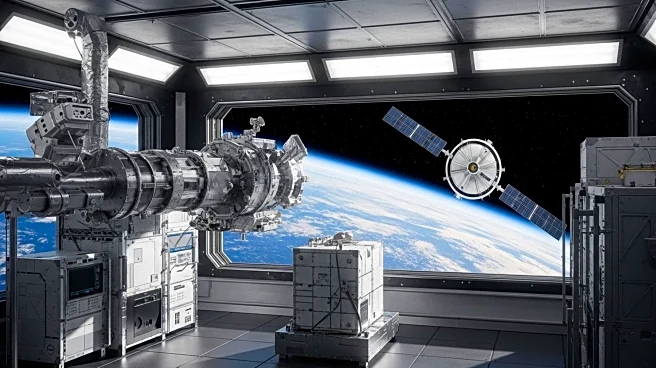What's Happening?
Axiom Space has launched the Axiom Space University Alliance, a coalition of space researchers aimed at advancing scientific priorities in orbit. The alliance seeks to facilitate collaboration on shared goals and assist the microgravity research industry in transitioning from the government-led International Space Station (ISS) to commercial space stations. Axiom's Chief Science Officer, Lucie Low, emphasized the alliance's role in identifying key research areas and advocating for necessary funding. The alliance is platform-agnostic, meaning research could be conducted on various commercial stations, not just Axiom's. The initiative is designed to be global, potentially bridging gaps between researchers from different countries, including those with geopolitical tensions.
Why It's Important?
The establishment of the Axiom Space University Alliance is significant as it represents a shift towards commercial-led space research, which could accelerate scientific advancements in microgravity environments. This transition is crucial for the future of space exploration, as it allows for more diverse and potentially faster-paced research opportunities. The alliance's global nature could foster international collaboration, enhancing the quality and scope of research. By focusing on microgravity's effects on human health and physics, the alliance could lead to breakthroughs in medical research and in-space manufacturing, benefiting both terrestrial and space industries.
What's Next?
The alliance will begin identifying priority research areas and seeking funding to support these initiatives. As Axiom Space continues to develop its commercial space station, it may play a pivotal role in hosting research projects identified by the alliance. The collaboration could lead to new partnerships with other space companies, expanding access to space for researchers worldwide. The alliance's success will depend on its ability to navigate geopolitical challenges and secure funding for its projects.
Beyond the Headlines
The alliance's potential to connect researchers from countries with strained relations, such as China, with organizations like NASA, highlights the role of commercial entities in reducing geopolitical tensions in scientific research. This could lead to a more inclusive and cooperative global space research community, fostering innovation and shared knowledge.










